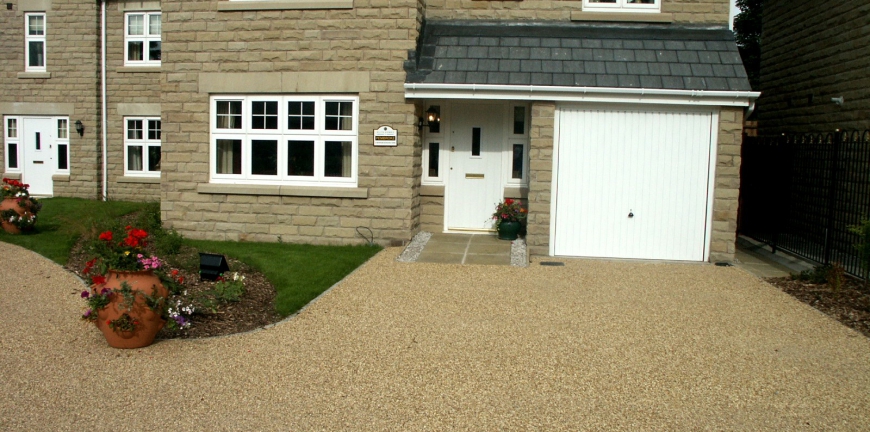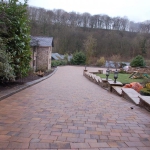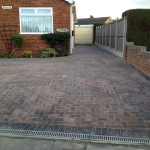
Say Goodbye to Potholes: The Advantages of Resin Driveways
Concrete and tarmac are the best resin driveway foundations. There are only two practical choices for substrates for resin driveways in Kent: tarmac/asphalt or porous concrete. Resin driveways can be built on top of tarmac or asphalt, provided it is laid on an appropriate sub-base and sufficiently deep. The asphalt or tarmac will be sufficiently solid and sturdy to sustain the necessary weight. On the other hand, porous concrete is present.
If this is a new basis, let the concrete stay for seven days to cure. However, if you are putting a resin driveway over an old, concrete base, you must make sure the base has been well cleaned. A primer must also be applied to the surface of the nonporous concrete foundation before the resin driveway can be installed. This is necessary for the two surfaces to stick to one other; otherwise, the intended effect won’t occur.
Installing Resin Channels has Advantages
Pathway paving slabs in Kent come in various options; resin-bound walkways can add visual appeal to the surface.
Because resin is available in a range of colours, the driveway may be customised to match a certain logo.
Resin pathways are more resilient and typically last longer than other options. There are UV-resistant types of resin-bound gravels that shield them from strong sunshine.
Unlike conventional pavers, the resin route does not have drainage problems. They become more robust and long-lasting as a result.
Time and money can be saved by overlaying it over an already-existing driveway surface.
Driveways bonded with resin are simple to maintain. It’s also simple to maintain the path tidy.
Resin-bound gravel may be customised to the property’s specific stylistic requirements.
Where is Resin Bonded Applicable?
It is an extremely flexible surface solution that may be applied to a plethora of different applications, such as:
- Parks
- Gardens
- Patios
- Driveways
- Parking lots
- Bike lanes
- Terraces
- Bridges
- Schools
Healing Periods
An installation works best on an overcast, dry day with a temperature between 12 and 18 degrees Celsius and no chance of rain.
Objects exposed to direct sunshine on warm days can reach 50–60°C, which speeds up the resin’s regular curing time.
Before laying on hot days, resins and aggregates should be kept in a cool, shaded area to maintain consistent and practical curing periods.
Similarly, cold weather causes a drop in air and ground temperature and a considerable extension of resin curing timeframes.
Reach out to us if you want your driveways to be pothole-free.


